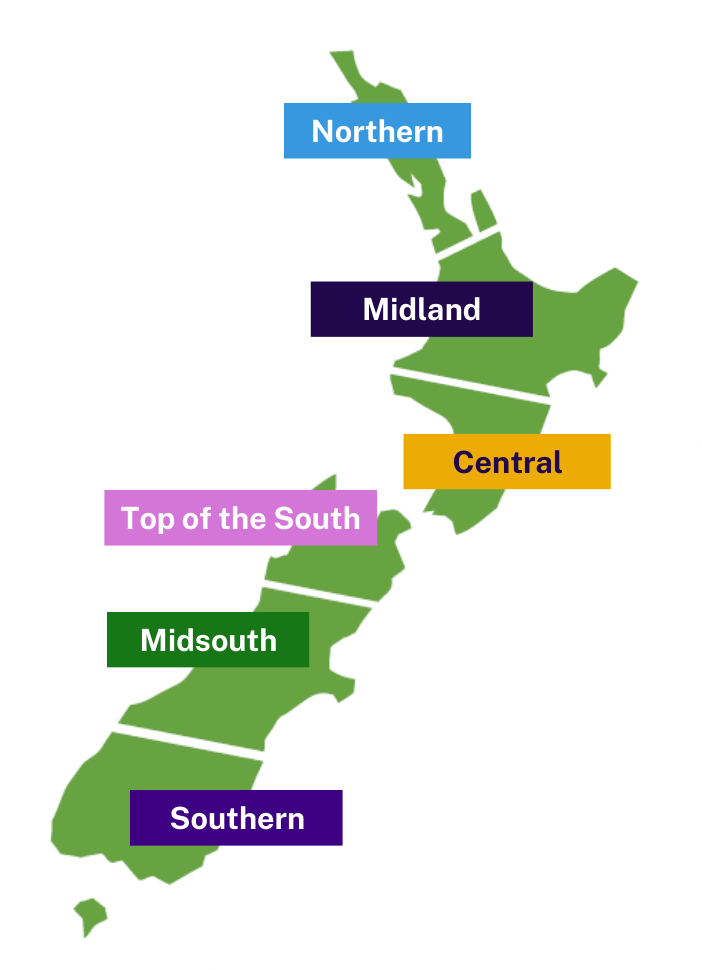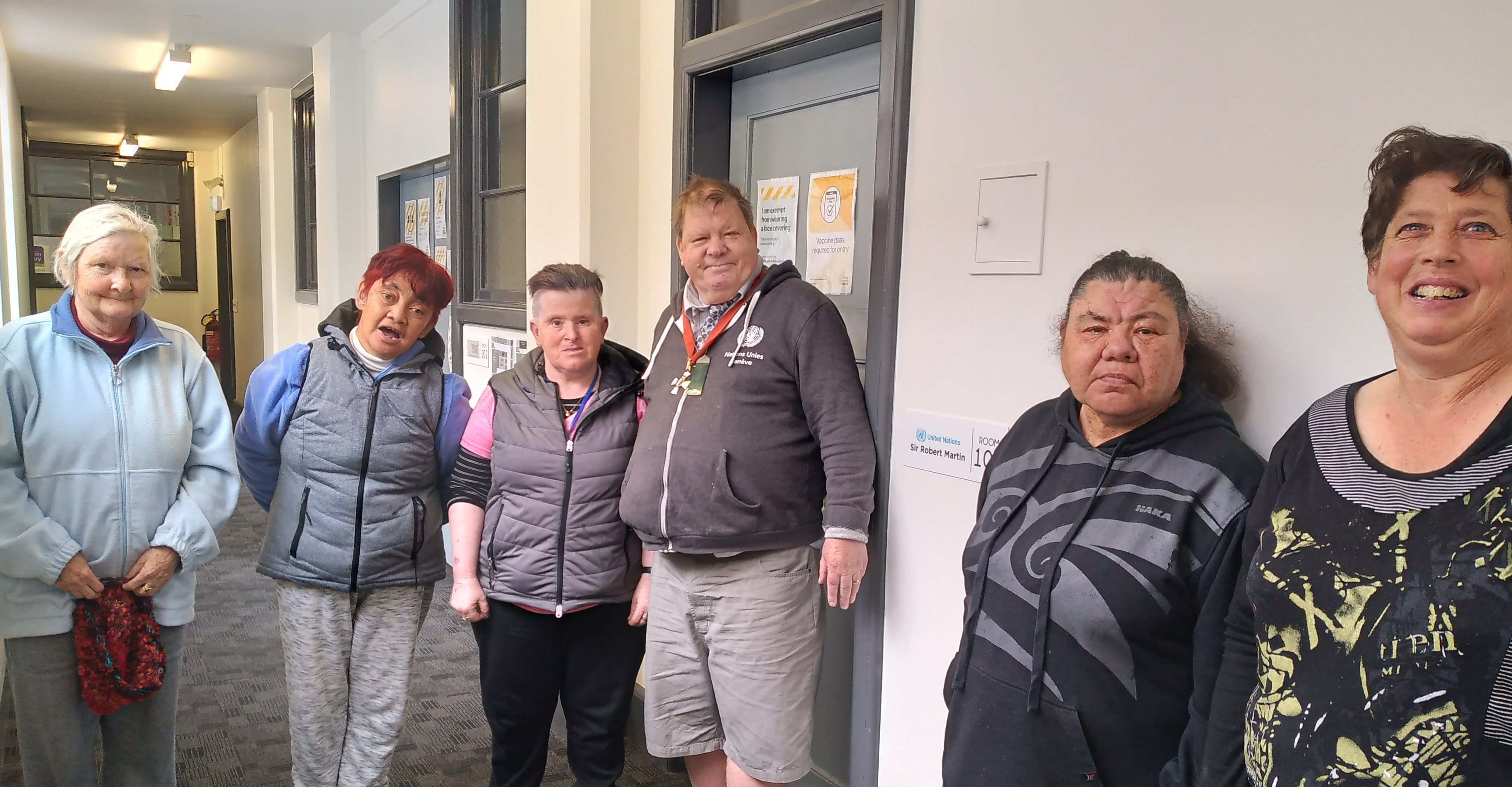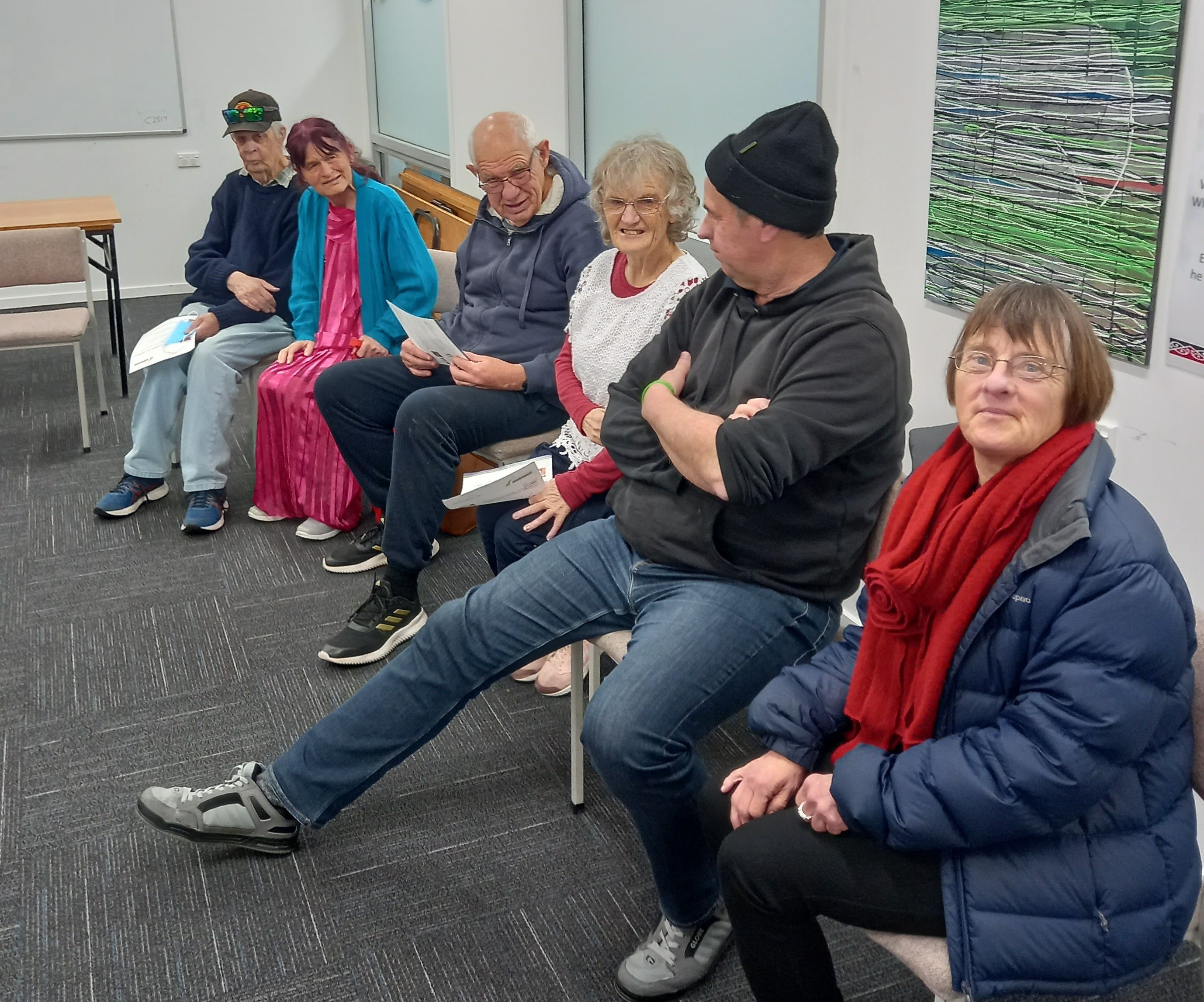Local groups
Each member belongs to a local group. The local groups meet once a month and are the foundation of all the work we do at People First NZ.
The meetings are run by members, who interview and decide on their local group assistant, and decide what they want to do at the meetings, and attend local events in the community to promote People First NZ and their local group.
At the meetings, members learn about their rights and how to speak up for themselves. People from community groups are invited to meetings to find out more about what they do. Whatever is planned, the groups are a fun way to meet people and to make new friends.
We have groups throughout New Zealand
We have 41 groups in 6 regions throughout New Zealand with about 800 members – you can find a local group near you in the list below.

Northern Region
The Northern local groups are:
- Whangarei
- West Auckland
- South Auckland
- Central Auckland
- East Auckland
- Franklin
- North Shore
Midland Region
The Midland local groups are:
- Hamilton
- Te Awamutu
- Tauranga
- Rotorua
- Whakatāne
- Te Puke
- Gisborne

Southern Taranaki group with Sir Robert Martin
Central Region
The Central local groups are:
- Wellington
- Kāpiti
- Hutt Valley
- Whanganui
- Manawatū
- North Taranaki
- Rangitīkei
- Wairarapa
- South Taranaki
- Horowhenua
- Mana

Blenheim group meeting.
Top of the South Region
The Top of the South local groups are:
- Blenheim
- Nelson
- Richmond
- Kaikōura
- Motueka
Midsouth Region
The Midsouth local groups are:
- Ashburton
- Christchurch
- North Canterbury
- Selwyn
- Timaru
- West Coast
Southern Region
The Southern local groups are:
- Ōamaru
- Dunedin
- Balclutha
- Gore
- Invercargill
Want to become a member?
To be a People First NZ member you need to be a person with a learning (intellectual) disability and be over 18 years old.
There’s a membership form to complete that asks for your:
- name
- address
- contact information like your email and phone number
- the group you are joining
- some personal information.
If you have any questions, get in touch with the regional coordinator for your region.
Find the contact details for your regional coordinator.
You can print the membership form and fill it out and give it to the Local Assistant at your first meeting. Please also read the privacy information about how we will look after information about you.